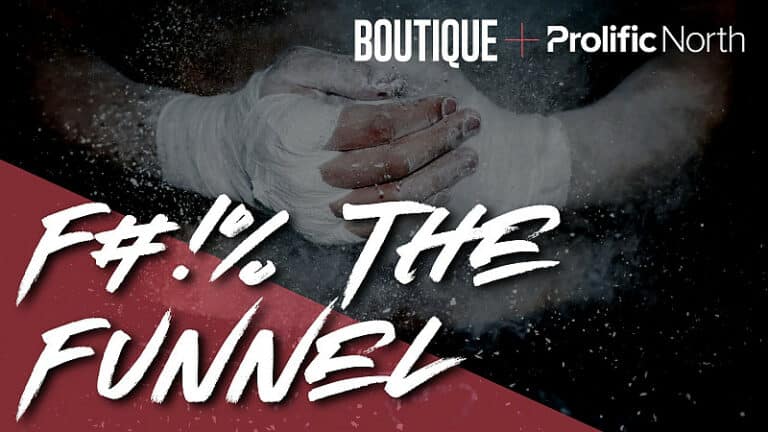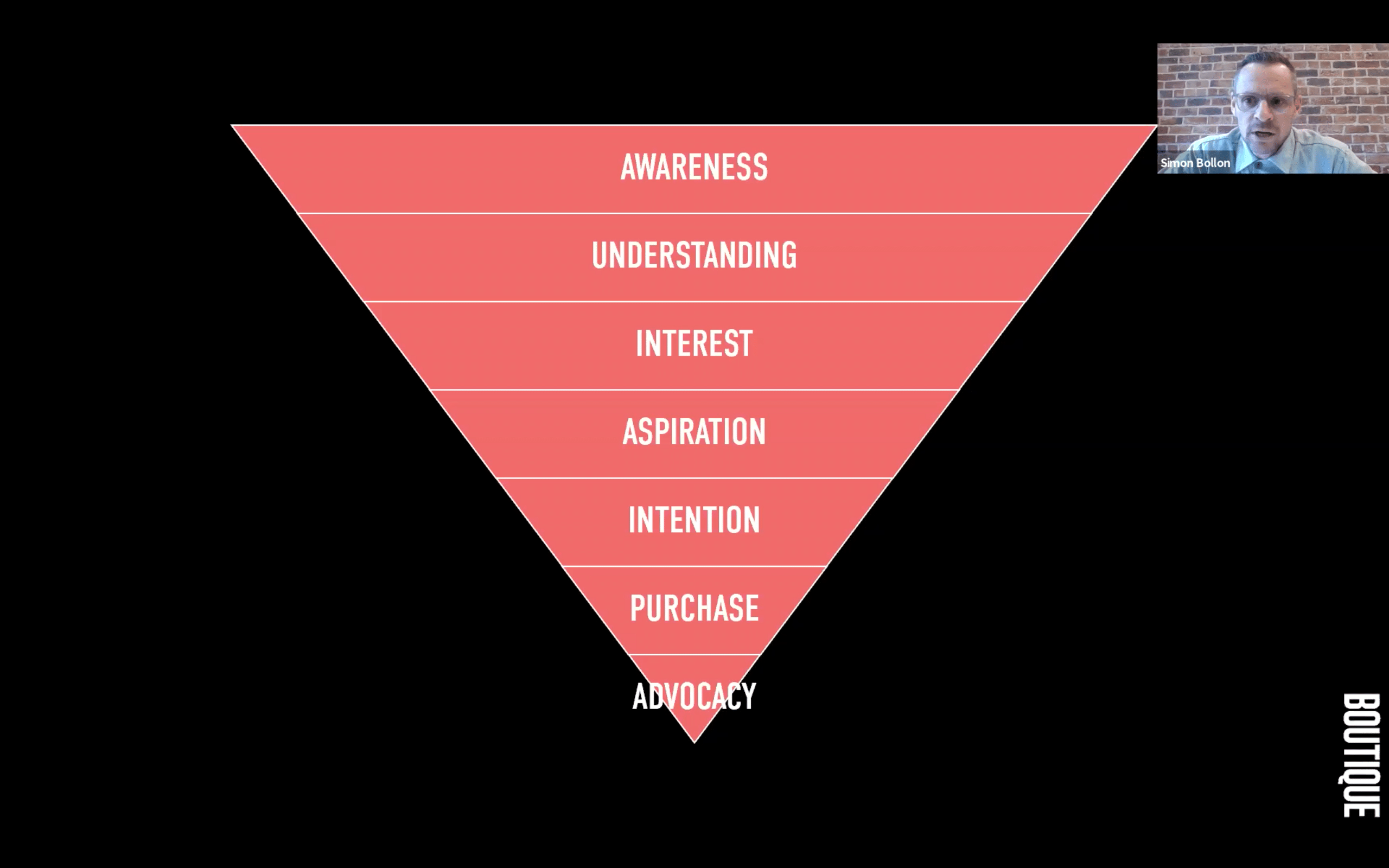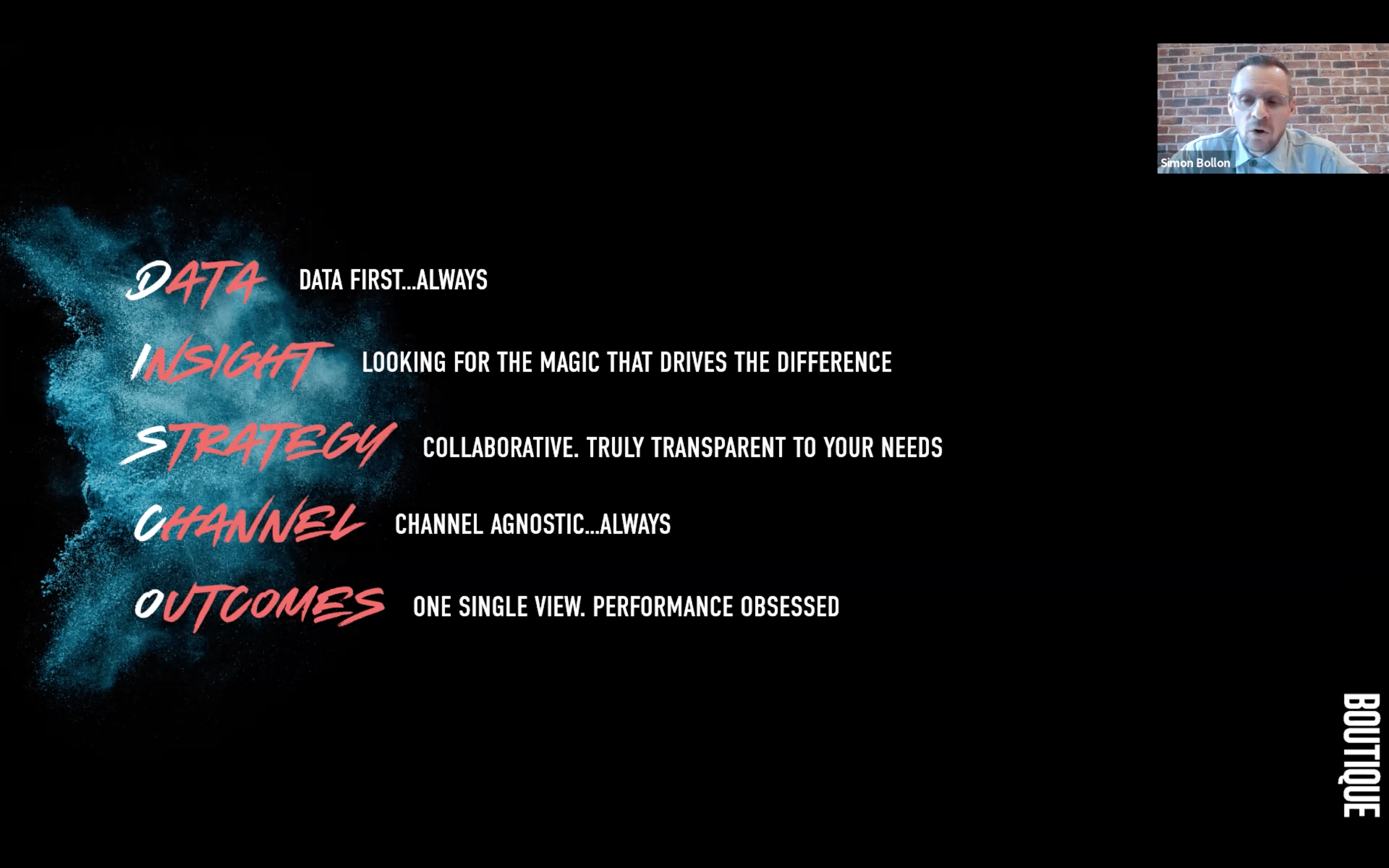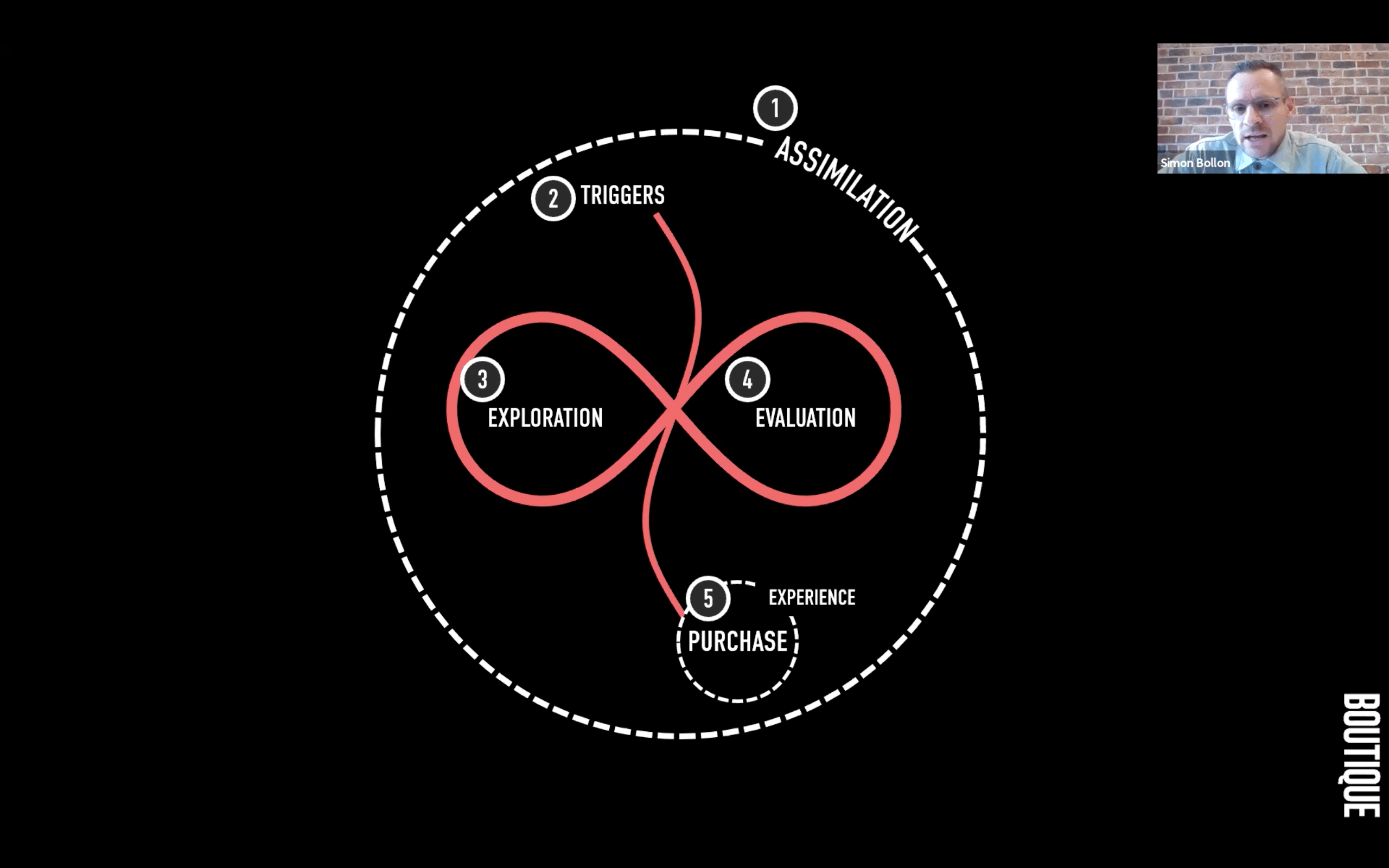At a virtual roundtable event on November 3rd titled F*** The Funnel, Leeds agency Boutique discussed the traditional AIDA marketing model and explored why it may no longer be relevant in the digital age.
During the hour-long event, held in partnership with Prolific North, the founder and director of Boutique Simon Bollon outlined that although the AIDA model still has “an important role to play”, the industry has moved on from its inception 100 years ago.
He explained it no longer represents the evolution of the buying process and introduced the agency’s DISCO model and new funnel. The discussion also covered the subject of ‘assimilation’, on how brands enter the psyche of the consumer to drive sales.
Limitations of the AIDA Model
Chairing the discussion, David Prior, Prolific North Editor, opened up the debate by discussing the traditional AIDA model which traces the customer journey through Awareness, Interest, Desire and Action.
Introducing the agency, Simon said Boutique has positioned itself as a “channel agency” working across media buying and planning, digital marketing and PR which is why it has created a new model for marketing.
On whether he thought the traditional funnel is “dead” he said he believes it is an old model that is “no longer fit for purpose”.
He explained this is due to there being less competition in the marketplace 100 years ago and is based on a simplistic process which no longer is sufficient in an industry that has evolved over time “particularly with the role of digital”.
On the established model he pointed to the acceleration of digital and ecommerce particularly amid the Coronavirus pandemic which has created a more competitive marketplace for brands.
Marketers are under pressure for short-term return on investment (ROI) as 77% measure all marketing in one month’s ROI, he explained.
However, he said consumers engage with brands for a long time prior to purchasing which means that customers float around the middle of the marketing funnel before converting.
He explained the agency has just completed a study for a client where it assessed social media and an email database and found that 64% of individuals following the brand and subscribed to receive emails had not purchased before.
Additionally, he said the funnel “lacks emotion” and is simplistic as it assumes customer behaviour but creating an emotional connection with a brand can drive increased purchase intent.















